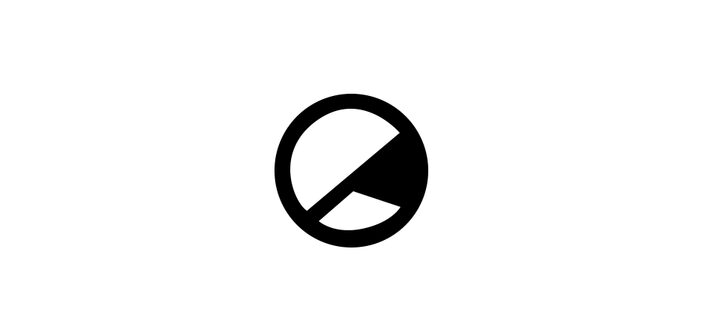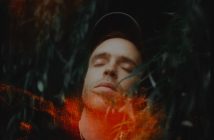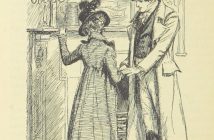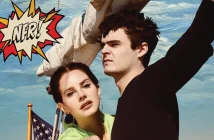After the screening of Her Composition at this year’s Raindance Film Festival, director Stephan Littger took to the stage to talk about his directorial debut which follows a young, talented composition student as she delves into the dark world of high-end prostitution to fuel an inspiration that might just save her artistic individuality. It brings up some interesting questions about feminism in a world of ingrained misogyny, but here he talks everything from sexism to aspect ratio, to his love-hate relationship with yoga.
Raindance Representative: Easy question first: Where did the idea for Her Composition come from?
Stephan: That’s actually quite a hard question because I’ve been saying different things every day every time I get asked. Well, I guess it came actually from me starting to do yoga for the first time. When I did it, I was thinking, this is a kind of strange space that I actually dislike. And I was wondering why people get drawn to it. I always felt like it was like a mental vacuum, y’know in a positive way that allows you to free yourself from your usual, everyday difficulties. And so I thought this was a really interesting space of what I probably seek when I create, or what we seek – this space that constantly subverts itself and in the moment you think you understand what it’s about. And so the yoga space was actually – that’s one way to answer your question – but at that time I didn’t have anything in terms of character story, I just thought I wanna make a story about that basic space
Well that’s quite a good answer for a Thursday night.
Tomorrow it’ll be different. Because it’s Friday.
How long did you work on the project and what were your biggest challenges for you personally?
What type of challenge are you interested in?
Probably the one that shook you the most, personally, as a person – as a director as well, but also that you found hardest to solve.
Okay, that’s good, I’ll try and give an interesting answer then. Well the biggest creative challenge was, when I had this idea to create a movie, the protagonist’s journey becomes the story. So the story of the story is that we are all composers as we are watching it, and we are all actively creating and get almost manipulated into creating without even realising it at the beginning. So that really got my juices going, that the idea that it is almost an impossible task to find the right actress, to find the right composer, to find the right painter, because that needed to be really authentic, that was very important to me – to find the right musicians, to bring it all together so that everything is actually authentic, almost like in a documentary, but even in a documentary you cannot arrange anything. So even more than a documentary. Sometimes I think even fiction film is like a syrup of reality, a syrup of documentary, like you create everything to be even realer because otherwise you won’t get away with it. And so bringing this team together, these fantastic team members we had, these fantastic actors, and we had this preliminary meeting which I will never forget and nobody who was participating will ever forget, because we also have the production designer and the camera operators, and we were all quite anxious before this meeting. We had a big conference table in the middle and the goal was to bring it all together in the next two hours. So I had obviously prepped and worked with each one of these people for a long time, but we had never had this central moment in the middle of the table which was basically this white sheet of paper, and had all our projections, and we knew we had to leave this meeting with basically the essence, the heart of the movie, and how we would bring it all together. So that went very well, even though on that day we also had to fire the costume designer. Because she did nothing of what I told her, nothing. But yeah, so that was a really fantastic meeting where anxiety met creation and resulted in a very good sleep for everybody that night, I think. Except for the costume designer.
The representative then opened the questions to the floor
Audience: Hi! So two points, in the beginning it started in 13:3 and moved to 18:5 for the aspect ratio, could you talk a little about that? And has it been screened anywhere else, has it been screened in Germany?
That’s the solution to the movie! I once did a q&a in a room full of people, 400 people, and only seven, maybe eight, noticed [the aspect ratio change]which is really fascinating, and then out of that seven or eight, only three noticed when it happened. Did you notice when it happened?
After the first movement right? [the film is split into four ‘movements’]
Yeah, yeah – did anyone notice it? Did it make sense to you? Before I actually answer the question, I’m actually interested about what you thought about it
Bit unsure – maybe like how she found some sort of solidity, like finding herself?
Yeah, yeah. Towards the editing stage, I just felt like playing around which I do all the time basically, at one point I dipped some parts in a whole different hue, a whole different colour. And I thought well that looks shit and I never told anyone about that until tonight. And so that stuck with me, I didn’t want to see the beginning without that anymore. And so it’s kind of like the beginning is somewhat conventional, is somewhat like everything is static, we start to think we’re going to see something we’ve seen before. And then we’re thrown something quite different and that’s, I don’t know, it appealed to me, it made sense to me, but on an emotional level and so I left it in. People are quite accepting of it, only afterwards I noticed and heard that Wes Anderson actually plays with three different ratios in that hotel movie [The Grand Budapest Hotel]. And I’d watched that movie before, and I hadn’t noticed it when I watched it the first time. But does anyone have any strong emotions about that? Or are violently opposed, violently in favour of it?
I really liked it, makes it different, different from other films. All these Hollywood films are going more and more widescreen and all, this was nice
And then you were disappointed when it went back to widescreen.
With the subject matter, was it a bit hard to try and get funding for? What was the kind of process for that like? I can see that as a little bit of a hard sell for some people. Did you have any problems with that at all?
With the money? Oh, so easy! Um, no it’s, like it’s my first feature film, my second feature film I’m putting together right now and will be very differently funded. Because I’m not willing to go through that process again. Uh, no it was very low budget and because I live in America, there’s some people who are willing to play with their own money. So it wasn’t ever about ‘will this be profitable?’ It’s nice if it’s profitable because then the investors, you can knock back at their door and get more money next time. But, adjacent to that question, I find interesting is that what is commercial and not commercial? I don’t think it’s the essence of the story, it’s elements that we sometimes neglect to talk about, it’s also not whether the ratio changes. I’m tending now to think that way, that it is really about whether it’s done in a commercial way.
It’s a lot like Black Swan I think.
That was a big influence on it, yeah.
And obviously the actors in that had a big influence on its commerciality.
Yeah, definitely, and if you have a few actors like that in it then you would have a commercial movie on your hands. And hit or non-hit, that’s something else. The general wisdom in America, at least, is that you want at least two actors who basically guarantee that commerciality. And yeah, of course, if you have good actors, that brings a lot to a movie. But then Joslyn (who plays Malorie) is so top of her game, she’s just so fantastic that it is interesting to see how if Joslyn, if she was a famous actress, how possibly she would be perceived differently. But obviously for her I’ve received nothing but fantastic feedback. She’s just so outstanding
You did a very good job of giving it a big scope, it has quite a big feel about it. When you say it’s low budget?
Well, couple hundred million.
But like yeah, you really got the feel of it being big.
Thank you!
Her Composition was screened at Raindance Film Festival, and you can read The Edge’s review of it here.




